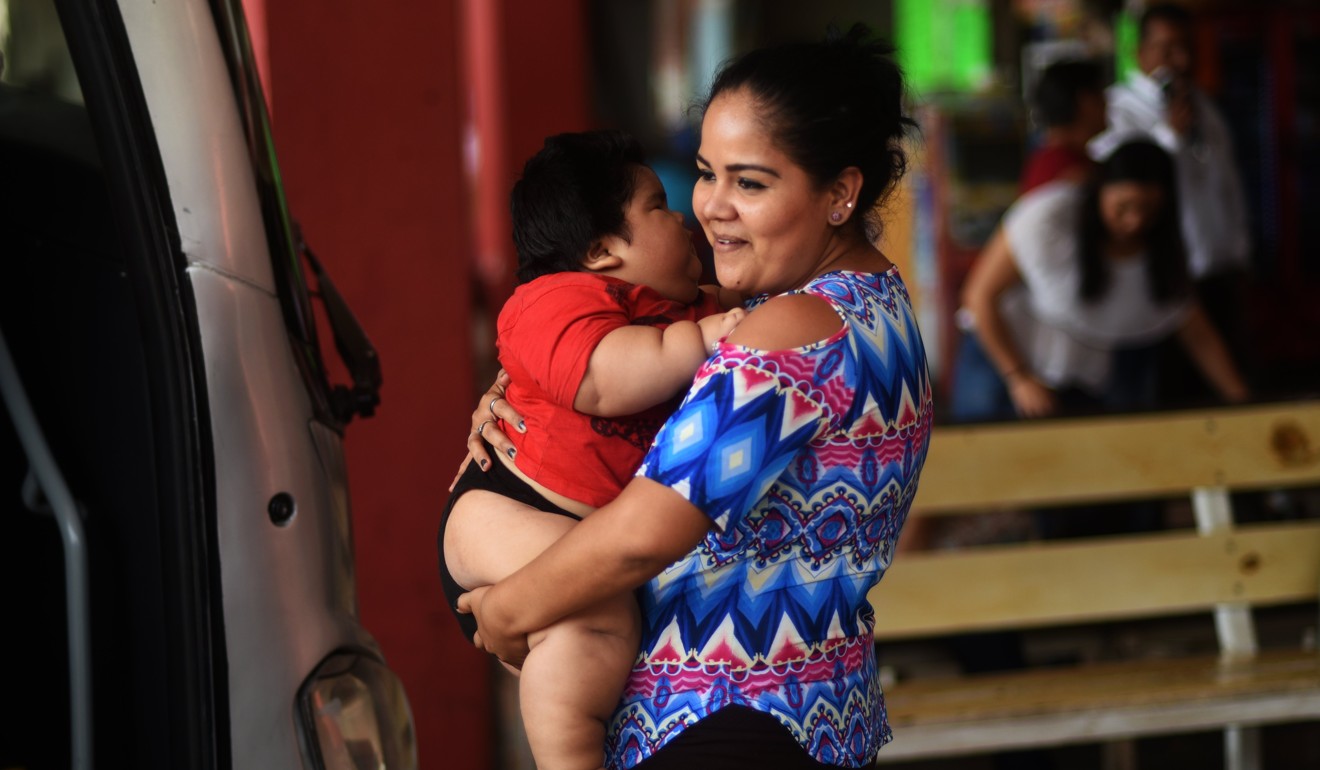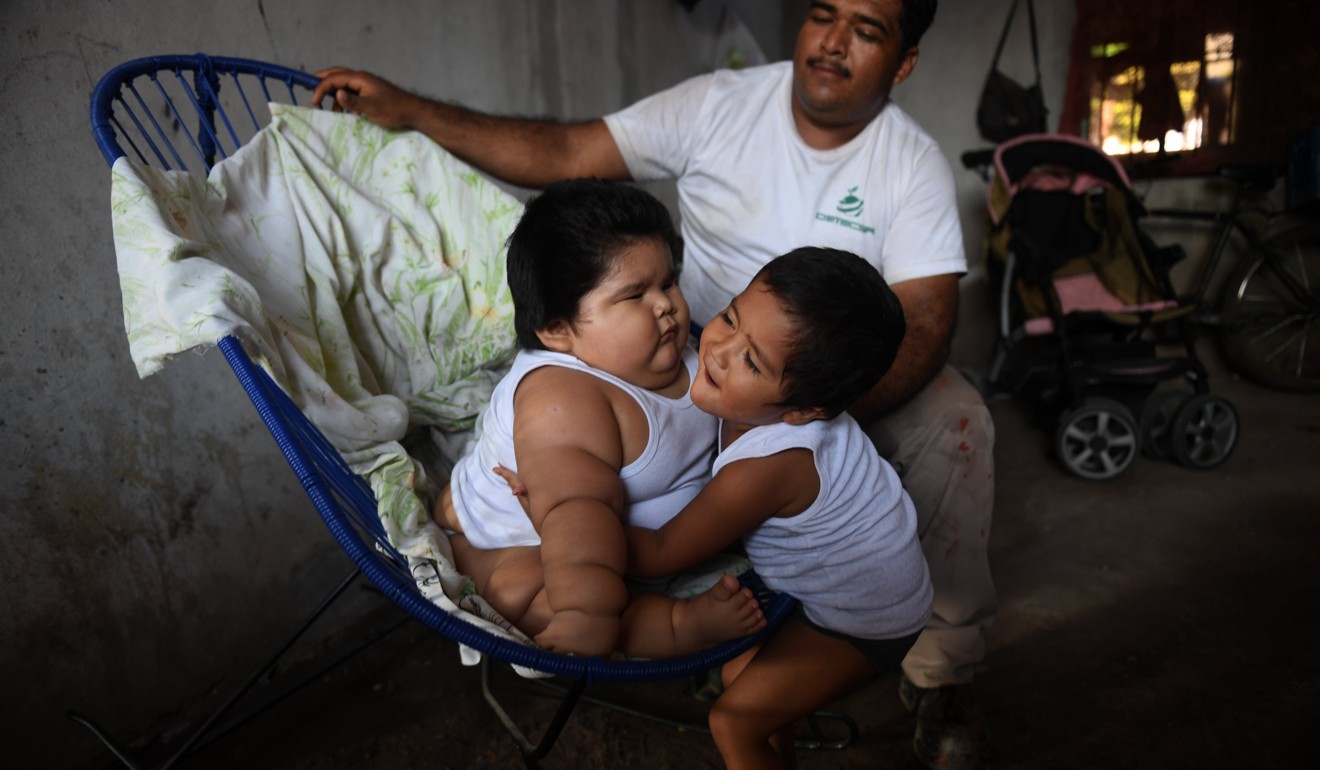
Toddler is 10 months old, weighs 28 kilos and doctors are baffled
At birth Luis Manuel Gonzales weighed 3.5 kilos, about the same as his brother Mario, who is almost three but is now dwarfed by his baby brother
Like any other 10-month-old, Luis Manuel Gonzales babbles and touches anything within reach. But he stands out in a stunning and perhaps life-threatening way: he weighs 28 kilos.
He might need medical treatment costing a fortune, but his father earns a little over US$200 a month. And doctors do not yet know why young Luis Manuel is so huge.
Mexico leads the world in childhood obesity and diabetes, and Gonzales is an extreme example of this unwelcome distinction.
At birth he weighed 3.5 kilos, about the same as his brother Mario, who is almost three but is now dwarfed by his baby brother.
At two months of age, Luis weighed 10 kilos. Over the next eight months he gained a staggering 18 kilos.
“I thought it was because I had good breast milk,” said his mother, 24-year-old Isabel Pantoja, speaking in the unpainted cement home where the family lives in Tecoman, in the Pacific coast state of Colima.

His parents created a Facebook page and opened a bank account for people to donate money for Luis Manuel’s medical care.
They take turns pushing him to the hospital in a decrepit stroller for daily blood tests.
It hurts to watch the nurses search among the rolls of fat on his arms for a vein, said his father, Mario Gonzales.
The parents got the shock of their life when a paediatrician told them the boy might need hormone injections that cost $555 each.
And despite lots of study and examination, no one really knows what is wrong with this baby boy.
One of the main hypotheses is that he could have a disease called Prader-Willi Syndrome, a genetic condition in which children have an insatiable appetite and weak muscle tone, although this boy does not eat voraciously or spend the day demanding food.

The disorder can also cause heart problems and delays in development of the brain and genitals.
Pantoja caresses her son as she recounts that when he was a little more than a month old, the boy had to wear clothes meant for two or three-year-olds.
The day of his first vaccine he weighed 10 kilos, she said.
Now he has to go to the hospital as many as four times a week for tests.
One day the stroller simply collapsed under his weight.
During an interview with the parents, Luis Manuel giggled when his feet were tickled. He tried to put things in his mouth, like other babies. And he observed everything with a keen, alert eye.
But he cannot walk or even crawl. He can only sit upright.
Pantoja is becoming exhausted from carrying him so much, said the father, a well-built man who works at a juice plant.
But there is hope. Silvia Orozco, a surgeon who specialises in nutrition, contacted the family and examined the boy.
She concluded that his life might be in danger, but is awaiting the results of tissue sample analyses in the United States.
Orozco said that, rather than Prader-Willi Syndrome, his problem may be this: while pregnant with Luis Manuel, his mother’s diet lacked certain nutrients and this caused glands that manage his metabolism to underperform.
If that turns out to be the case, the prognosis is good and would involve hormone shots.

.png?itok=arIb17P0)